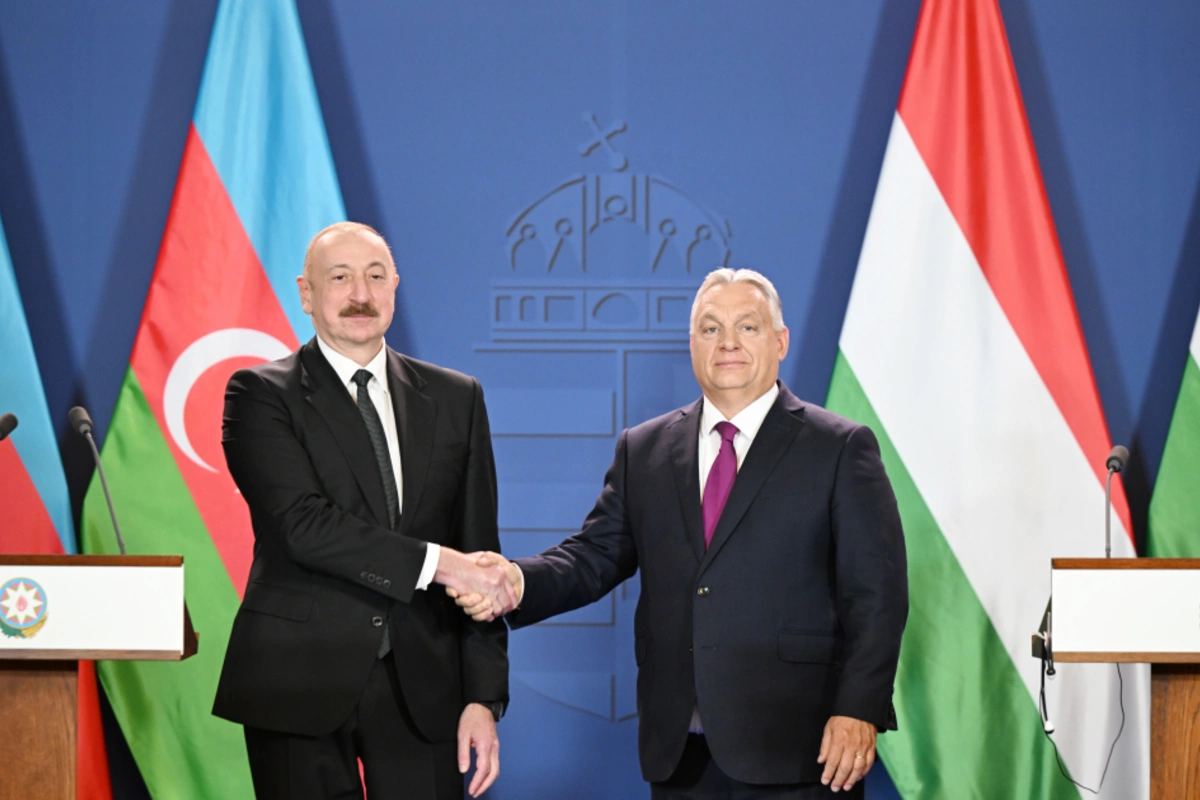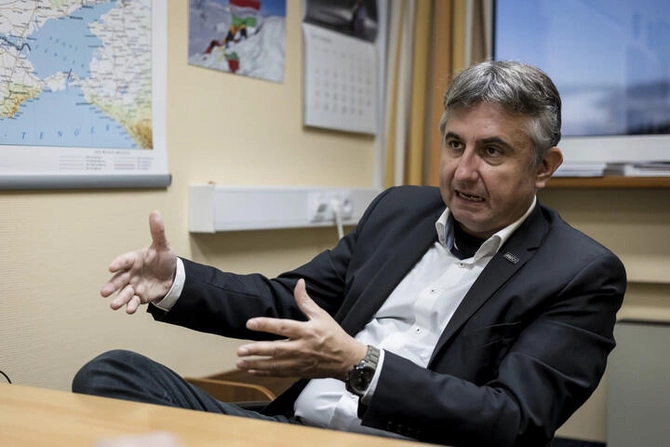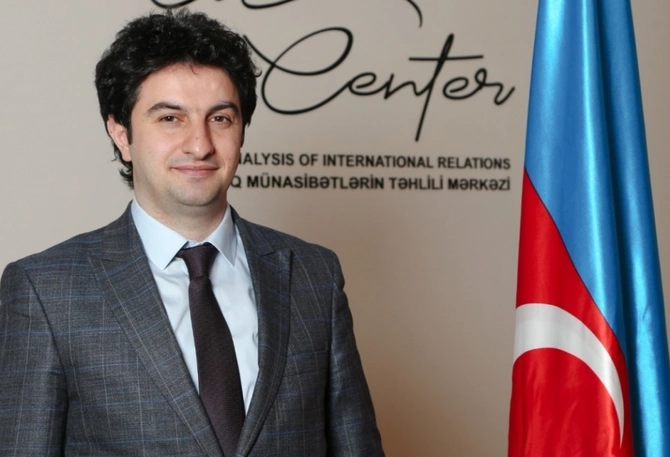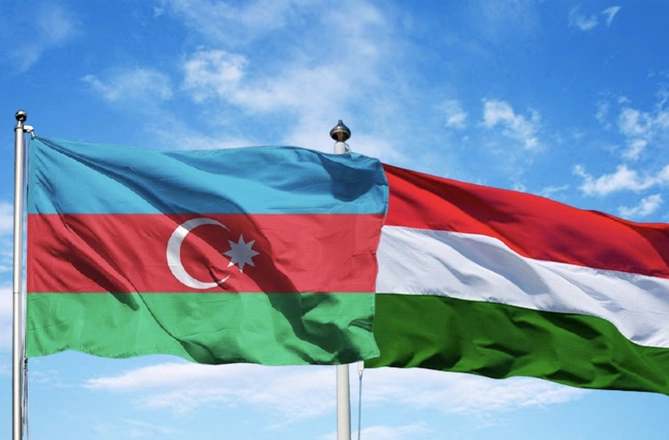
Photo: Azertac
By Faig Mahmudov
The partnership between Hungary and Azerbaijan represents a pragmatic and forward-looking model of international cooperation. At a time when Europe grapples with energy insecurity and political fragmentation, Hungary’s decision to deepen its ties with Azerbaijan signals a clear commitment to diversifying energy sources and asserting geopolitical independence. This cooperation goes beyond oil and gas-it is about forging strategic alliances that offer long-term value.
Culturally and politically, the connection is also meaningful. Hungary’s active involvement in the Organization of Turkic States underscores its openness to forming regional partnerships beyond the traditional Western European framework. This engagement paves the way for deeper collaboration with the Turkic world, unlocking new trade, cultural, and political opportunities.
For Azerbaijan, the relationship provides a valuable channel into the European Union. Hungary’s support within EU institutions enables Azerbaijan to better represent its interests on the continental stage. This mutual support builds a foundation of trust that is increasingly rare in today’s international politics.

Dr. Attila Demkó, Head of the Strategic Foresight Program at the John Lukacs Institute of the National University of Public Service (NKE) in Hungary, told News.Az that Hungary and Azerbaijan enjoy a mutually beneficial strategic partnership marked by close cooperation in energy, culture, and regional integration. Hungary acts as Azerbaijan’s voice in the EU, while Azerbaijan serves as Hungary’s bridge to the Turkic world.
“Hungary and Azerbaijan are strategic partners. Hungary serves as an ambassador for Azerbaijan within the European Union, consistently working to represent Azerbaijani views and positions. For Hungary, Azerbaijan is a crucial partner-not only in energy cooperation and cultural ties, especially through the Organization of Turkic States-but also as a gateway to Central Asia. I believe both countries offer unique opportunities to one another. Hungary is Azerbaijan’s path into the EU, and Azerbaijan is Hungary’s access point to the Turkic world, the Caucasus, and the Caspian region. This is clearly a mutually beneficial relationship.”
Dr. Demkó emphasized that Hungary’s active participation in the Organization of Turkic States is a key mechanism for maintaining strong ties with the broader Turkic world:
“Alongside Türkiye, Azerbaijan is Hungary’s most important partner within this group. Politically, this platform is significant, but it also strengthens cultural ties. Cultural understanding-despite the geographical distance-is essential for building a lasting bilateral relationship.”
On economic matters, Dr. Demkó noted that the energy crisis in Europe-exacerbated by the war in Ukraine and sanctions on Russian oil and gas-has had a severe impact on the continent’s economy. In this context, cooperation with Azerbaijan has become vital:
“This partnership is essential not just for Hungary, but for the entire EU, as it seeks to secure alternative sources of energy beyond Russia. While Hungary aims to maintain its relationship with Russia, energy diversification is crucial. We view Azerbaijan as a serious and reliable partner. Affordable energy supplied via Türkiye from Azerbaijan helps diversify Hungary’s energy sources. Reducing our dependence solely on Russia and expanding ties with Azerbaijan-and possibly with Central Asian countries-is a positive step forward. This could lead to lower gas and potentially oil prices. At the same time, Hungary represents a new market for Azerbaijan and is prepared to invest in the exploration and extraction of Azerbaijani resources. Once again, this is a win-win partnership.”

In a separate interview with News.Az, Vasif Huseynov, Head of Department at the Center for Analysis of International Relations (AIR Center), highlighted the strong personal rapport and mutual understanding between the leaders of Azerbaijan and Hungary as a key driver of the dynamic and multi-dimensional development of bilateral relations:
“One of the main reasons for the rapid and multifaceted development of Azerbaijan-Hungary relations across various sectors is the leadership factor-namely, the friendship and shared vision of the two countries’ leaders. Their alignment on regional and geopolitical issues creates a highly favorable environment for expanding bilateral cooperation. Hungary’s participation in the Organization of Turkic States as an observer also plays a significant role. Since the organization includes a limited number of member and observer states, it operates as a close-knit structure where trust deepens, mutual interests grow, and cooperation becomes more dynamic. As a result, Azerbaijan-Hungary relations have advanced rapidly in recent years. For instance, bilateral trade turnover has increased by more than 70% over the past 3-4 years.”

Speaking about the political pillars of this partnership, Huseynov emphasized that Hungary’s accession to the Organization of Turkic States offers a flexible platform for expanding bilateral ties:
“This comes at a time when the Organization of Turkic States is evolving from a cooperative framework into an emerging geopolitical actor. In this context, joint initiatives between Azerbaijan and Hungary give strong momentum to cooperation in other areas and open up new opportunities.”
He also noted the strategic importance of Azerbaijan’s energy corridors, especially given the limitations of transit routes through Ukraine:
“From a political perspective, Hungary today stands firmly against certain leftist ideologies in Europe and openly defends its national interests-even under pressure from larger EU states like France and Germany. In this context, Hungary’s emergence as a hub for alternative energy routes gives it important geopolitical leverage. Within this broader framework, Hungary views Azerbaijan and other member states of the Organization of Turkic States as valuable partners and seeks to deepen cooperation across energy, economics, and politics. The goal is to further consolidate Hungary’s position as an independent and influential geopolitical actor.”
As Hungary and Azerbaijan continue to deepen their strategic collaboration, this evolving partnership is set to play an increasingly influential role in shaping the future of energy security, regional connectivity, and cross-cultural dialogue. With shared interests and growing trust, both countries are well-positioned to contribute to a more stable, diversified, and interconnected geopolitical landscape-linking Europe with the Turkic world and beyond.
Share on social media